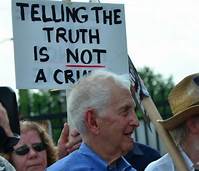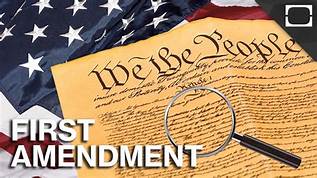Technology plays a big role in our lives today. We use it for our social life, for work, for school, for food, for shopping, etc. Technology has had a huge impact in our lives, but has that impact been good or bad?
For me, I start by looking at my relationship with technology and if it is healthy. Our phones fortunately, and unfortunately, track how much screen time we use. On average, I use around 5 hrs. a day of screen time. That is around what the average time Americans spend on their phone, which is 4.5 hrs. Much of that time is spent on social media. Social media is great for connecting with friends and family, but it is also great at collecting data on us. Every time we post, comment, or search something, data tracking is happening. Think about how much we use Google. If we want to learn about something, we search it on google. If we want to find information on someone, we can google their name and any social media platform they are on or pictures that have been posted of them will appear. This leads me to then ask instead, is technology dangerous?
Over a year ago Google had a lawsuit filed against them for the data they were collecting and selling. Google had originally been known to protect users data stating that they would "never sell any personal information to third parties' and 'you get to decide how your information is used.'" This of course ended up being a false promise.
"While Google says user information is 'anonymized' and shared with 'just a few partners,' it allows ad-aduction participants to match data they already have from other sources with unique identifiers provided by Google to identify individual users - even those who have taken measures to keep from being tracked," the suit claimed. This is why you might have an ad pop up while you are on google that is about something you are interested in or have been looking at purchasing lately. For example, one time I had been looking up nike shoes to purchase. Later when I went back on my laptop to do research for a school project I had an add pop up about nike shoes. The third parties Google sells our data to use that data to pinpoint ads at us. Again, if you google your name you can probably find pictures, or social media accounts, or anything that has been posted about you will appear on Google. Where is our privacy? You may still wonder how having our information out there would have such a huge impact on us. Let's look at this from a job standpoint. Employers can search and find out all about you, the good and the bad, all from the internet. Anything that you, or someone else has posted about you, or written about you, is forever on the internet, and an online footprint of you is being made. We even use social media or the internet to find out about people. For example, your friend may come to you and tell you about someone they just met. You immediately try to look them up on social media or google their name. Social media and the internet have a lot of information on us.In October of 2020, the department of Justice sues google for violating antitrust laws. The complaint was, "Google has entered into a series of exclusionary agreements that collectively lock up the primary avenues through which users access search engines, and thus the internet, by requiring that Google be set as the present default general search engine on billions of mobile devices and computers worldwide and, in many cases, prohibiting preinstallation of competitor." Google has made it so that they have no competitors. Selling information to third parties has allowed them to gain the spot of being the top search engine, knocking out competitors.
When President Trump was in office, even he tweeted that, "Google and others are suppressing voices of Conservatives and are controlling what we can and cannot see." Google of course is not the only platform that takes our information and manipulates our thinking.When President Obama was in office he made a personal appeal to Facebook's chief executive. He's appeal was that Facebook needed to address more the political disinformation on the platform or this disinformation would only grow to get worse. Facebook then responded to this appeal and federal pressure by, "shifting from its original commitment to being an 'open platform for people and perspectives from across the political spectrum' to a company that routinely curates content."
Even Facebook is choosing what we see on their platform. This leads to the question, is the information we are receiving from these platforms accurate? A lot of fake news is out their due to platforms trying to manipulate our view points. For me personally, I try to do my research and not believe everything that pops up on my feed on any social media platform. We live in a day where our information is being taken, and disinformation is being given to us. This has to make one wonder, is technology a danger to us? Well, with every new technology there comes with it the good and the bad. It all depends on how we use it. Google and social media, as well as many other platforms, can all be beneficial in researching, advertising, and staying in touch with friends and family. There of course is the bad that comes with it such as the disinformation, data tracking, and everyone being able to discover information about us. My take away from all of this, is to not let these platforms control me, but to be careful what I post, search, and read.


























